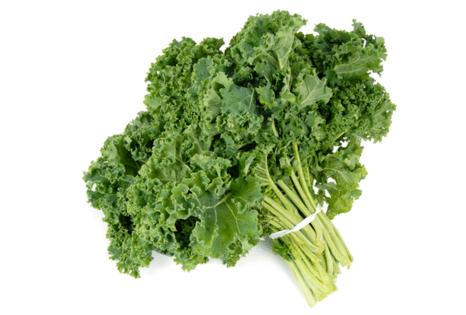On Nutrition: Oxalates: Bad for bones?
Published in Nutrition
Kathy C. from Indiana writes: “Recently, I read that people with osteopenia should avoid foods with oxalates. It's hard for calcium to be absorbed. The partial list includes healthy food that I like to eat: spinach, beets, tofu, cocoa, kiwi, oranges, pineapple, peanuts, cashews. Is there a safe amount that can be eaten? How often? Thank you.”
This is a great question, Kathy. And a bit complicated. Oxalates (aka oxalic acid) are naturally occurring compounds in plant foods. Some contain more oxalates than others.
Oxalates have been called “anti-nutrients” because they can bind to minerals such as calcium and magnesium and prevent your body from absorbing these important nutrients. In addition to interfering with the body’s ability to absorb calcium, high levels of oxalates can increase the risk for kidney stones.
Here’s the problem. Oxalates are in many foods that provide needed nutrients. In fact, most plant foods contain at least some oxalates. Spinach, for example, is a good source of calcium but it is also very high in oxalates. If you rely on spinach for your daily calcium needs, be aware that only 5% of the calcium in this vegetable is actually absorbed.
In comparison, the body absorbs up to 50% of the calcium in dairy foods (which contain little to no oxalates). That’s why milk-based foods are the main natural sources of calcium in many diets worldwide, according to a 2022 review on this topic in the journal Nutrients.
Good luck trying to avoid all foods with oxalates. And because measurements of actual oxalate content vary from one source to another, an exact amount in each food is hard to find. From the list you mentioned, spinach, soy foods (tofu), cashews and peanuts are the highest in oxalates. So is rhubarb and beet leaves, although beets themselves are much lower. Kiwi, oranges and pineapple are actually quite low in oxalates.
Vegetables cooked in water or processed in some way (frozen and canned) are generally lower in oxalates. Baked potatoes have more oxalates than boiled or mashed potatoes.
Try kale in place of spinach on occasion. It’s lower in oxalates. And limit nuts to the serving on the can.
Foods that contain oxalates are extremely healthful foods, says the Bone Health and Osteoporosis Foundation. Just don’t count on them to be a good source of calcium.
Here’s another question: If I eat spinach and drink milk in the same meal, do the oxalates only affect the calcium in the spinach? The International Osteoporosis Foundation says yes, oxalates only prevent the calcium (from the high oxalate food) from being absorbed and “they do not interfere with calcium absorption from other calcium-containing foods (such as milk) eaten at the same time.”
Other experts say oxalates released from one food can “potentially” affect the absorption of calcium from other foods consumed at the same time. Any experts out there who might clarify this for us?
©2025 MediaNews Group, Inc. Distributed by Tribune Content Agency, LLC.










Comments